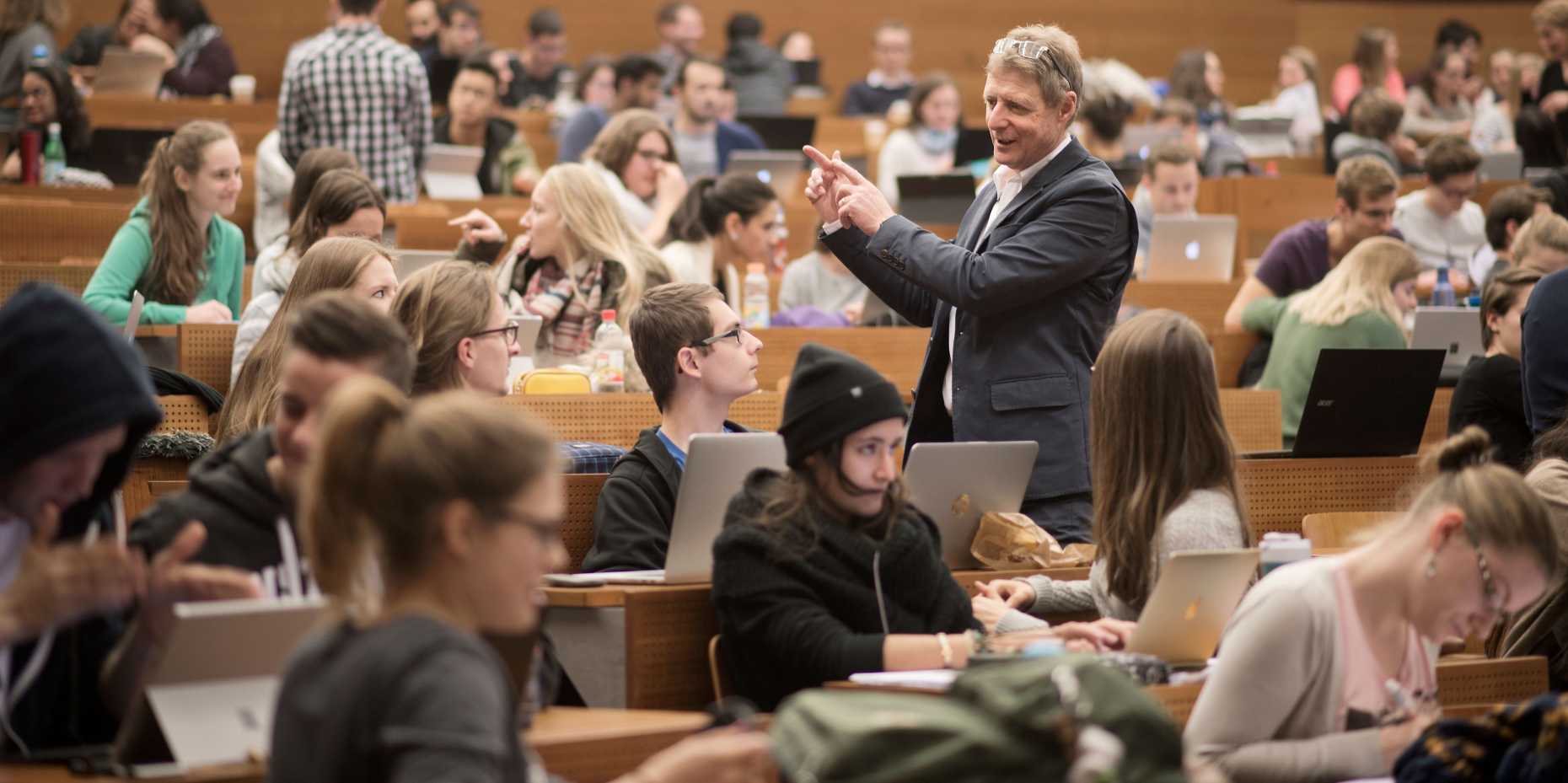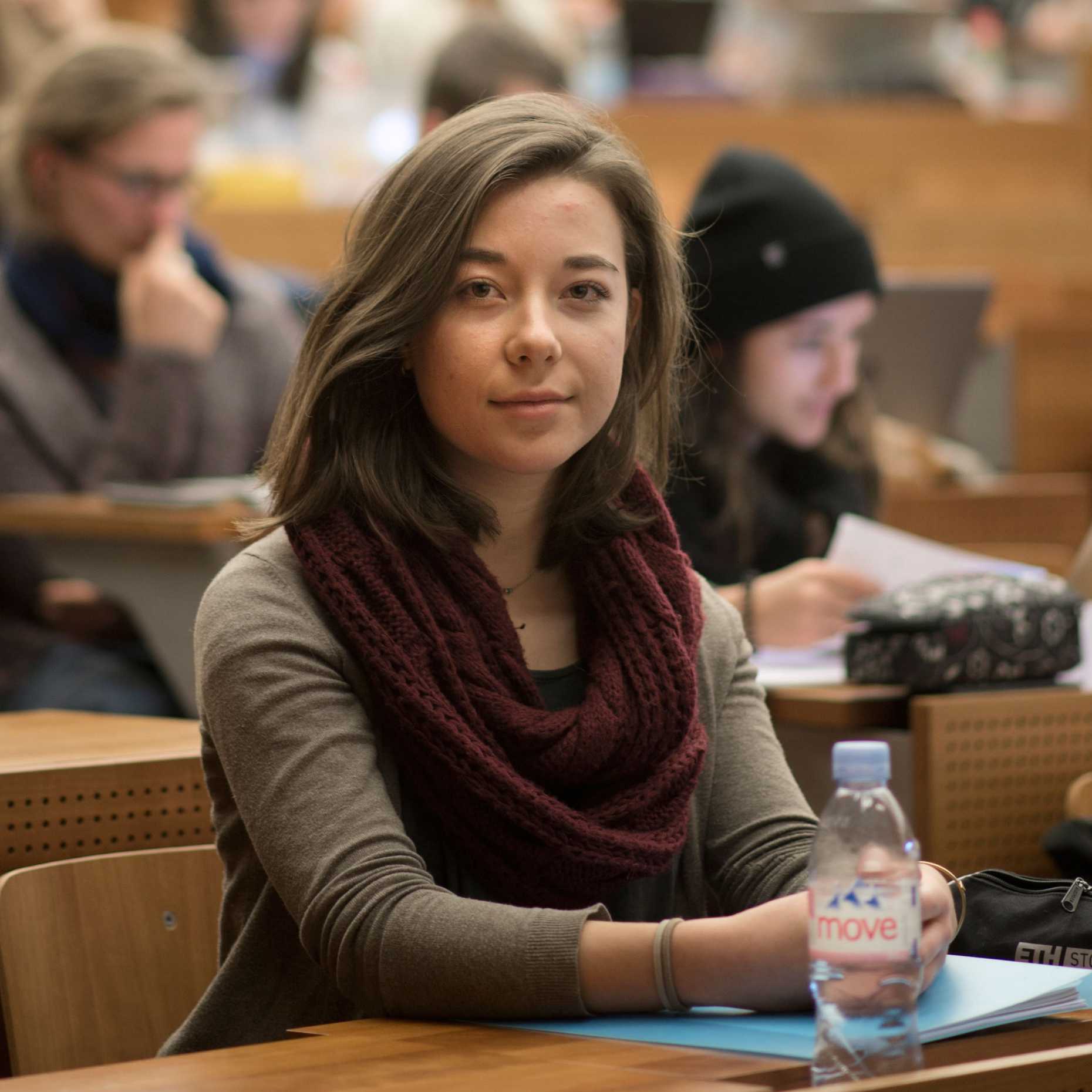More discussions during classes
For students, the end of the autumn semester marks the beginning of an intensive period of lecture revision. New forms of teaching such as flipped classrooms promote independent student learning during the semester. In the Department of Biology, this teaching method is being particularly encouraged.

“Try to talk to each other as much as possible,” says Katja Köhler, a lecturer in the Department of Biology, as she attempts to motivate around 500 first-semester students at the start of the lecture. Normally, talking during classes is frowned upon, but in the flipped classroom on genetic variability, it is actively encouraged.
Individual lesson design
Alongside traditional classes, the Department of Biology has been running one or two lectures as flipped classrooms each semester since autumn 2013. This teaching method encourages students to teach themselves theory through self-study using interactive learning exercises with text and videos on the Moodle learning platform. Classroom time can then be used to discuss problems in groups. Two lecturers and up to ten teaching assistants are on hand in the lecture theatre to help with questions. “The concept gives us the chance to interact and talk with students during the lecture,” explains Katja Köhler. Students thus benefit from one-on-one support that caters to their differing levels of knowledge.
Better conceptual understanding
In addition to allowing more interaction in the lecture theatre, the introduction of this approach also has another objective, as Ernst Hafen, Deputy Head of Institute for Molecular Systems Biology and Director of Studies of the Department of Biology explains: “The students shouldn’t be focussed solely on passing their first-year examinations; they also need to develop better conceptual understanding of the lecture material.” This comes as a response to the results of a doctoral project carried out within the department, which found that students often learn the material only shortly before the examination and thus are less adept at making conceptual links between the different topics.
Hugely popular among students
The teaching method has won many fans among students. Since its introduction, students have been surveyed at the end of each semester in order to improve the concept on an ongoing basis. By the time the third survey was carried out, 95 percent of participants stated that they wanted more flipped classroom lectures. And when students are asked what they think in person, they list many advantages to the approach:
“The group work helps me to identify my weaknesses and fill gaps in my knowledge.” Leonie Seefeldt (1st semester, Bachelor’s in Biology)

“In flipped classrooms, fundamental concepts are instilled during the semester, thus laying the foundation for independent thinking.”David Lauenstein (Teaching Assistant, 1st semester, Master's in Biology)
Department-specific teaching centre
To help organise the flipped classroom courses and prepare lecture plans, the Department of Biology has founded the Center for Active Learning (CAL), which is available to all of the department’s lecturers. A teaching centre of this nature on the department level is a first at ETH Zurich but, in Ernst Hafen’s view, is a key factor in the approach’s success: “We need a team of experts who know the subject well to help prepare and review the lectures.” For its technical infrastructure, the Center for Active Learning uses learning platforms that are developed by the administrative department Educational Development and Technology at ETH Zurich.


